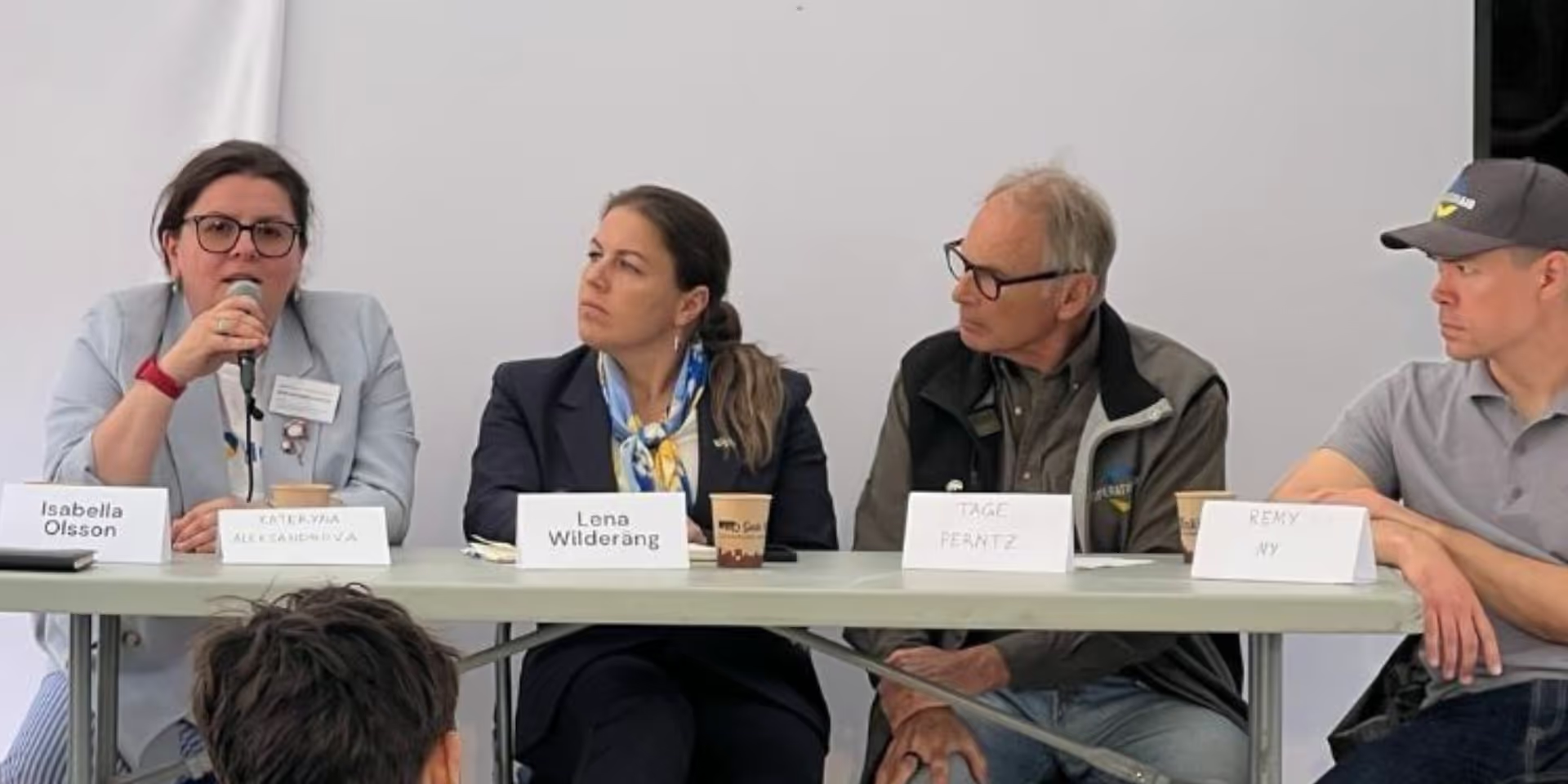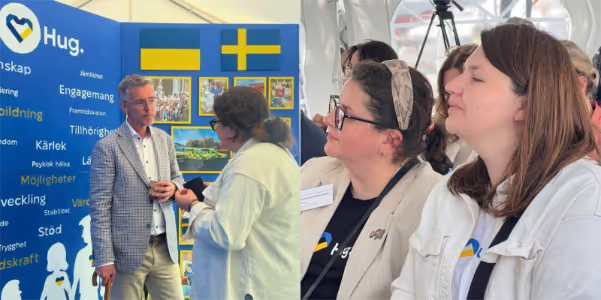
This year, Help Ukraine Gothenburg (HUG) took part in Almedalsveckan with a clear focus: to ensure that the challenges faced by displaced Ukrainians — and the solutions developed by civil society — are part of national dialogue and long-term policymaking.
We joined strategic meetings, contributed to discussions on reconstruction, integration, and mental health, bringing proposals based on our fieldwork, research, and lived experience.
For us at Help Ukraine Gothenburg, this recognition reinforces the direction we are already taking. Our current focus includes:
We are proud to have built real expertise in these areas, and we are ready to scale our impact. The interest we met at Almedalen confirms that this work is not only relevant but needed. We also had the opportunity to participate in a panel discussion, organised by Ukrainska Hubben, where important topics were raised – our work on the ground in Ukraine, psychosocial support and integration to the challenges faced by displaced Ukrainians in Sweden. Such conversations are necessary, and we are grateful for the space in which they can take place openly and meaningfully.
We shared findings from our recent policy brief, Support for Mental Health and Integration: Long-term Solutions for Ukrainians Who Have Fled to Sweden, developed under the Better You and Me project. The brief was referenced in several discussions, with Delmi recommending it for further reading by political actors.

“Mental health conditions are considered an exceptionally serious challenge for Ukrainian refugees,” said Anna Hammarstedt from Delmi during a panel at Almedalen, referring to HUG and Delmi recent policy brief on the topic.
During the Almedalen week, we had conversations with:
...and many more experts, colleagues, and partners committed to Ukraine’s future.
Our counterparts expressed appreciation for the projects we are already running, and for the practical experience and knowledge we are ready to share with Sweden.

We also felt a strong shift in how Ukraine is perceived — not only as a recipient of aid, but as a partner in knowledge exchange, innovation, and resilience building.
Ukraine has gone from being a recipient of aid to being seen as a source of valuable expertise. It is a development marked by great sacrifice — but also one that can help shape the future of Europe.
One of the most important conversations took place between representatives of the Ministry for Foreign Affairs (UD), Sida, and the business community. The meeting highlighted a shared responsibility to support Ukraine’s reconstruction and prepare for future EU membership.
Sida and UD emphasized their ongoing work in capacity building, democratic support, and institutional strengthening, while the business sector stressed the importance of sustainable investments, expertise, and innovation in reconstruction efforts.

“The collaboration between UD, Sida, and the business community will mark an important step towards a long-term and strategic Swedish engagement. It is through joint efforts and mutual learning that we can best contribute to a sustainable and democratic future for Ukraine — as a full member of the European community.” - Kateryna Alexandrova, HUG
For HUG, these discussions validated our approach to civil society engagement and highlighted opportunities for deeper collaboration. We contributed our perspective on how mental health support, veteran rehabilitation, and community integration fit within broader reconstruction goals.
We return from Almedalen with strengthened networks, visible alignment with national priorities, and new opportunities for cross-sector collaboration.
Civil society plays a central role in shaping responses to complex challenges — and psychosocial support and integration to the challenges faced by displaced Ukrainians in Sweden must remain on the agenda.
Thank you to everyone who listened, engaged, challenged, and contributed to shaping what comes next.
We look forward to continuing this work in collaboration with a clear purpose.
